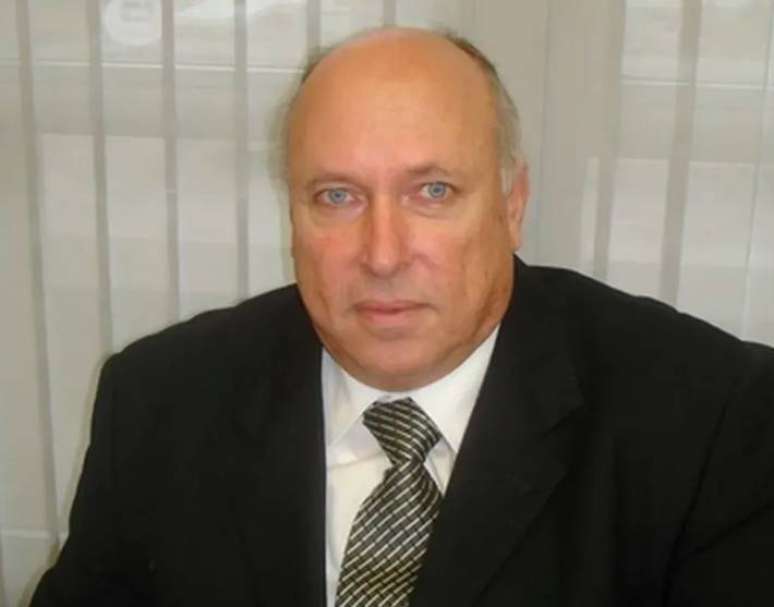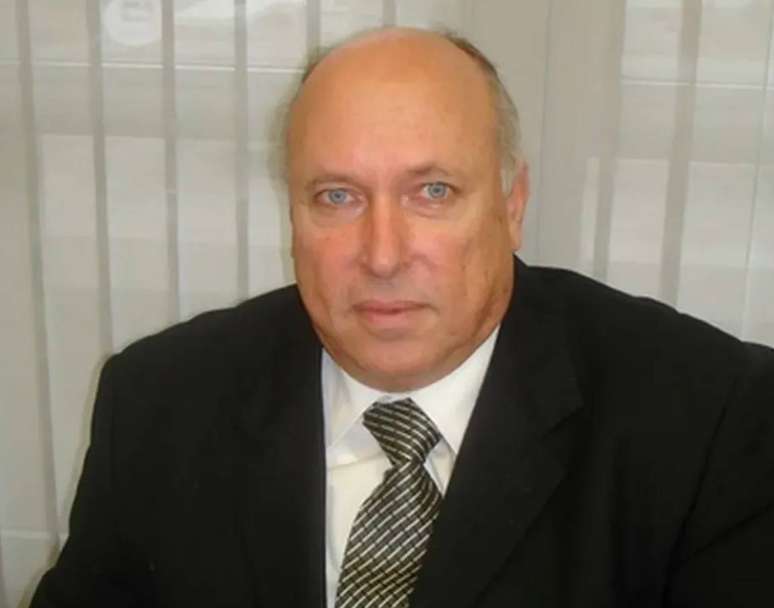The Labor Prosecutor must oppose the request for emotional affiliation of Sônia Maria de Jesus, announced by the family of judge Jorge Luiz de Borba
“It’s yet another tragedy caused by child labor over time.” This is how labor lawyer Lys Sobral Cardoso describes the life of the deaf-mute woman rescued by the Federal Police from the home of a judge in Santa Catarina in conditions similar to slavery.
The woman, who has just turned 50, is Sônia Maria de Jesus. She moved in with her family when she was still a child—her exact age is unknown, she was between 9 and 12—and she has spent a lifetime tutoring. She never learned Brazilian Sign Language and only got her first CPF in 2021.
“A black child, in a situation of extreme socio-economic vulnerability, from a family that was unable to support him,” adds the prosecutor.
The case came to the attention of the Public Ministry of Labor in the second half of last year, through an anonymous complaint, and had repercussions for involving an authority from Santa Catarina, Judge Jorge Luiz de Borba, of the Court of Justice of the State.
The Borbas claim that the woman was like a ‘family member’ and that her goals were ‘humanitarian’. With the repercussions of the case, they announced that they will ask to adopt ‘Soninha’, guaranteeing her all rights, including her property rights.
“The fact that there is affection, that there is a relationship within the family, at home, at home, doesn’t badly characterize exploitation,” Lys retorts.
The Public Ministry of Labor must oppose the request for emotional affiliation. “It is necessary to evaluate what type of measure will be adopted as a possibility to escape this recognition (slave labor). No measure adopted now is able to erase the past”, adds the prosecutor.
The investigation reveals that Sônia slept in a separate part of the house, intended for employees, and did not eat with her family. She was taken to a reception center for victims of domestic violence and is followed by professionals. She has also started learning Libras.
“Today she gave a smile that won everyone over. I also received a text saying: ‘she had a laugh here and is making friends’. That’s what was taken into consideration. Since she can’t tell if she’s happy or sad, reactions, other forms of communication, everything must be considered”, summarizes the lawyer.
Read the full interview:
ESTADÃO: What is the main challenge here?
Lys Sobral Cardoso: There are challenges on both sides. From her point of view, communication is a big challenge. To really talk about rescue, we need economic and social inclusion. The fact that he lacks the ability to communicate in our standard is an extreme challenge and reinforces the characterization of work as analogous to slavery, because this increases his degree of vulnerability. Now, after the rescue, it’s an extra challenge because communication is crucial for her to move on to another life. In addition to the fact that it involved a great authority in the State of Santa Catarina.
ESTADÃO: Do you have the perception of being exploited?
Lys Sobral Cardoso: It’s hard to even rate it. It is a case that requires special care. We are following her closely to understand what is happening to her. The foster home team has already said he is fine. The report is that he is expressing a desire to make friends. Today he gave a smile that conquered everyone. I also got a text saying, “she had a laugh here and is making friends”. This is what has been considered. Since he can’t tell if he’s happy or sad, reactions, other forms of communication, must be taken into consideration.
Furthermore, a domestic violence relationship in the workplace involves some degree of physical or psychological abuse – in this case, with the argument that she has always been part of the family. But some fundamental rights were not guaranteed. You lived 40 years with that perspective. It’s not easy. All of this needs to be considered.
ESTADÃO: Is the argument that the exploited person is part of the family common in similar cases? Does this make the MPT’s job more difficult?
Lys Sobral Cardoso: It is common. It gets harder, no doubt. When we analyze the relationships as a whole, as a justice system itself, some tools of persuasion are more difficult to deconstruct. Physical violence is ostensive, so it is more easily combated in this sense than psychological violence, abuse, coercion, deception, fraud. It is more visible to see and fight.
We have focused on the Maria da Penha Law, because it carries an important clue to discover these relationships, in order to better understand the fact that there is affection, that there is a relationship within the family, at home, at home, do not mischaracterize the exploitation that has taken place.
ESTADÃO: Is this the line that the Public Prosecutor’s Office will take in the event of a lawsuit against the family?
Lys Sobral Cardoso: The legislator himself had already understood it: the extent of a relationship of affection and, within it, of exploitation. The accusation that there is affection, that they understood her as part of the family, does not exclude the fact that she worked and received different treatment from the couple’s children. This is an indisputable fact. She didn’t sleep in the same place, she slept in a separate part of the house, intended for servants. She didn’t eat with the family. The relationship was different.
They had other employees over time, some were registered, they had an employment relationship. He didn’t. So she was in the middle: they say she was part of the family, but she wasn’t treated as such, but she wasn’t even recognized as an employee.
ESTADÃO: Don’t you have any relatives?
Lys Sobral Cardoso: Unidentified. She has come for the company of the family (Borb) child. It is yet another tragedy caused by child labor which has spread over time.
ESTADÃO: How old were you when you started living with your family?
Lys Sobral Cardoso: The exact age at which she came into the family is unknown. She between 9 and 12 years old. And she just turned 50. A black child, in a situation of extreme socio-economic vulnerability, from a family that was unable to support him.
ESTADÃO: Do you have the documents?
Lys Sobral Cardoso: His first CPF was registered in 2021.
STATUS: Will he remain in foster care indefinitely?
Lys Sobral Cardoso: Homes for victims of domestic violence already have this prospect of extending hospitalization over time, despite the fact that the law speaks of a 30-day period, which can be extended. Those who welcome know that this often extends over time. For us, as justice, it is necessary to evaluate what is best for her: whether she can live alone in a certain period or, if not, who she will stay with, who will welcome her, under what conditions. All of this is monitored.
ESTADÃO: What are the next steps?
Lys Sobral Cardoso: The investigation continues to be prepared. There are witnesses to listen to. The next steps are a compliance deadline or a lawsuit. One does not exclude the other. We are evaluating. This is from a work point of view. Criminal liability rests with the federal prosecutor’s office.
ESTADÃO: Can the MPT oppose the request for emotional affiliation announced by the judge’s family?
Lys Sobral Cardoso: It is our responsibility because, once a situation of modern slavery, of work analogous to slavery, has been recognized, it is necessary to evaluate what kind of measure will be adopted as a possibility to escape this recognition. No measure taken now is able to erase the past. This is impossible. What can be done to justify everything that happened? Nothing. There’s no way to do that.
ESTADÃO: Is there a deadline for the MPT to complete the investigation?
Lys Sobral Cardoso: No legal term. But there is the time frame of the circumstances, both what we manage to obtain from the evidence, and the need to promote the necessary measures, compensation, judicial condemnation…
ESTADÃO: Did you start studying Brazilian sign language in the foster home?
Lys Sobral Cardoso: Today (06/12) was the first contact. The reaction has been really good.

Source: Terra
Rose James is a Gossipify movie and series reviewer known for her in-depth analysis and unique perspective on the latest releases. With a background in film studies, she provides engaging and informative reviews, and keeps readers up to date with industry trends and emerging talents.






